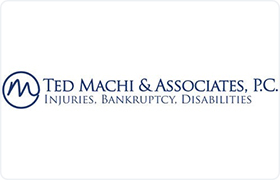Godley Bankruptcy & Debt Lawyer, Texas
Sponsored Law Firm
-
 x
x

Click For More Info:
-
Machi & Associates, P.C.
1521 North Cooper Street Suite 550 Arlington, TX 76011» view mapAccident & Injury, Bankruptcy, Social Secuirty We Fight So You Don't Have To
Our professional team of attorneys and staff provide the experience and expertise needed to effectively handle your case.
800-804-0771
Robert W. Hammer
Construction, Personal Injury, Litigation, Commercial Bankruptcy
Status: In Good Standing Licensed: 42 Years
Daren Richard Van Slyke
Oil & Gas, Family Law, Credit & Debt, Personal Injury
Status: In Good Standing Licensed: 17 Years
Michael Scott Wilson
Litigation, Family Law, Business & Trade, Commercial Bankruptcy
Status: In Good Standing Licensed: 26 Years
Lane Eyer Rugeley
Litigation, Oil & Gas, Family Law, Credit & Debt
Status: In Good Standing Licensed: 37 Years
Robert Edward Luttrell
Juvenile Law, Bankruptcy, Construction, Dispute Resolution, Personal Injury
Status: In Good Standing
Robert E. Luttrell
Juvenile Law, Bankruptcy, Construction, Dispute Resolution, Personal Injury
Status: In Good Standing Licensed: 21 Years
Burt Edward Powell
Estate Planning, Bankruptcy, Elder Law, Commercial Real Estate, Estate
Status: In Good Standing Licensed: 41 Years
Jon P. Hammond
Credit & Debt, Personal Injury, Elder Law, Family Law
Status: In Good Standing Licensed: 53 Years
Tesa Lashawn Jackson
Family Law, Criminal, Credit & Debt, Personal Injury
Status: In Good Standing Licensed: 22 Years
 Ted Machi Arlington, TX
Ted Machi Arlington, TX Practice AreasExpertise
Practice AreasExpertise
